Mental health: how to get your head around it

- What does mental health mean?
- What are mental illnesses?
- What are diagnoses?
- What are possible signs of mental health problems?
- What can you do if you want to improve your mental health?
- What can you do if you are worried about your or someone else’s mental health?
- Where to get support
You wanna learn more about mental health awareness?
What does mental health mean?
When we talk about mental health, we talk about the human mind. The mind is everything that takes place internally, such as a person’s thoughts and feelings, but also things like the ability to concentrate, motivation, memories or dreams.
Being mentally healthy doesn’t just mean not having any mental illnesses. It also means feeling good and balanced and being able to make the most of your personal abilities. This enables you to cope well with challenges in your everyday life.

What are mental illnesses?
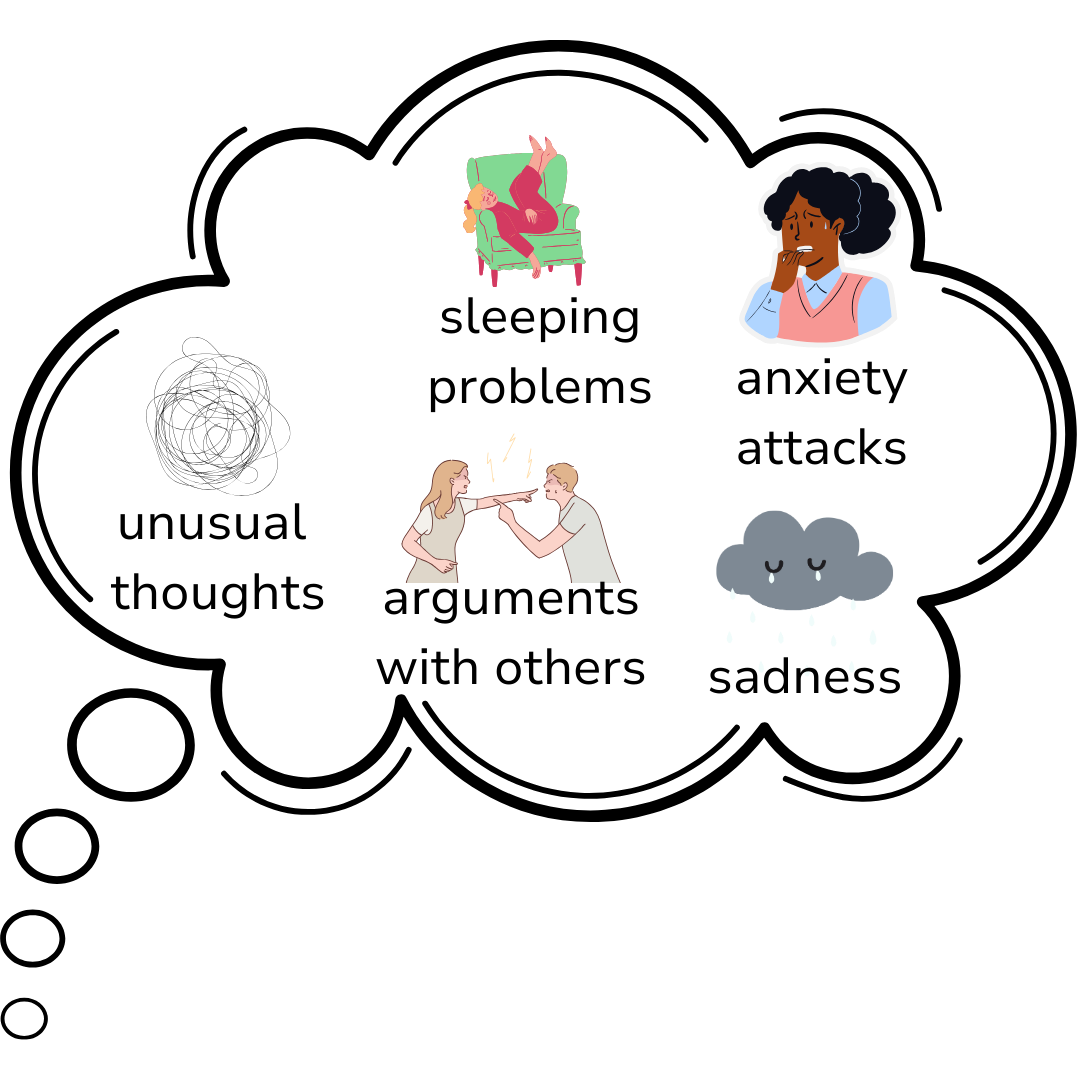
Note that mental health problems are just extreme forms of perfectly normal sentiments.
In any case, only specialists (e.g. psychotherapists or doctors) can assess whether a person really has a mental illness.
What are diagnoses?
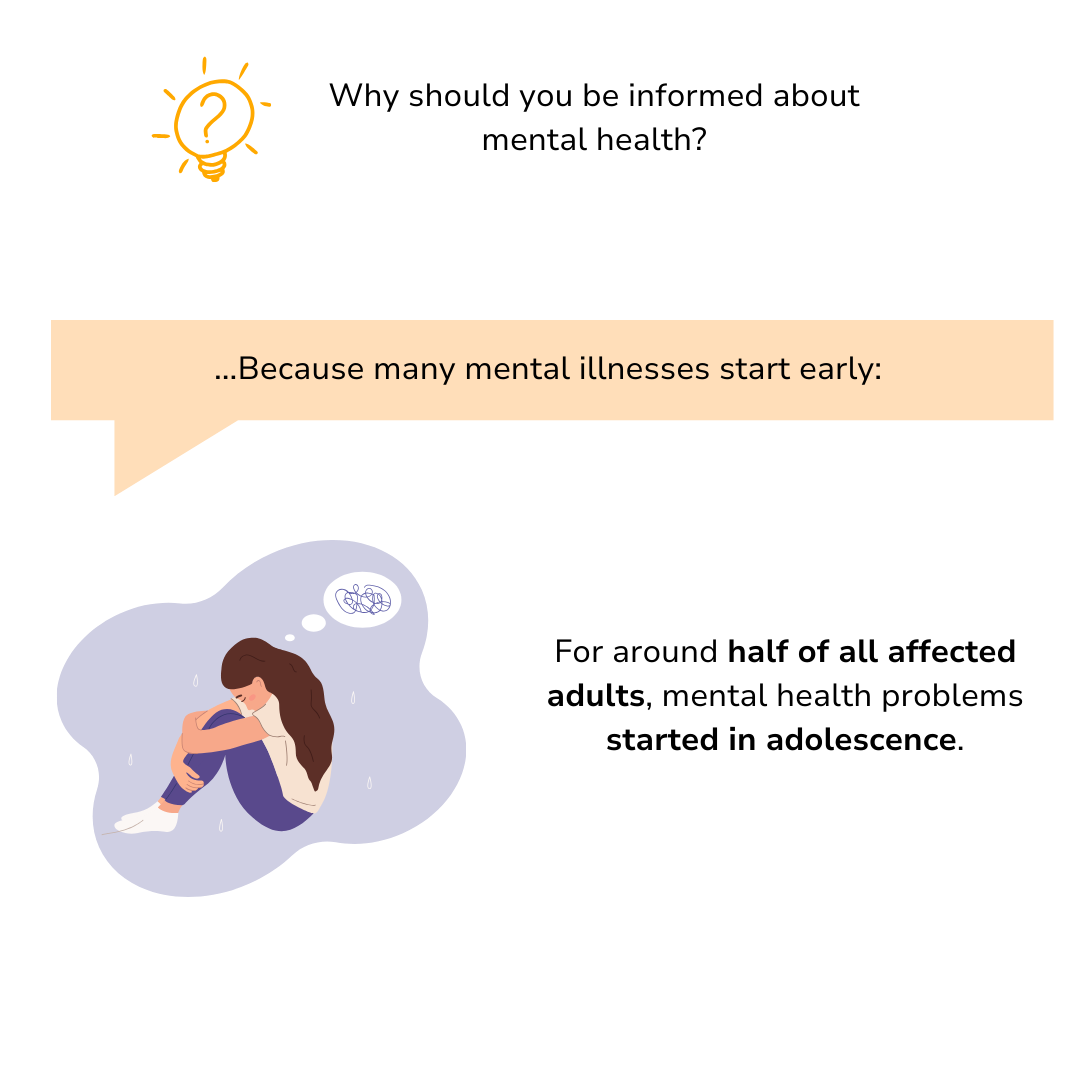
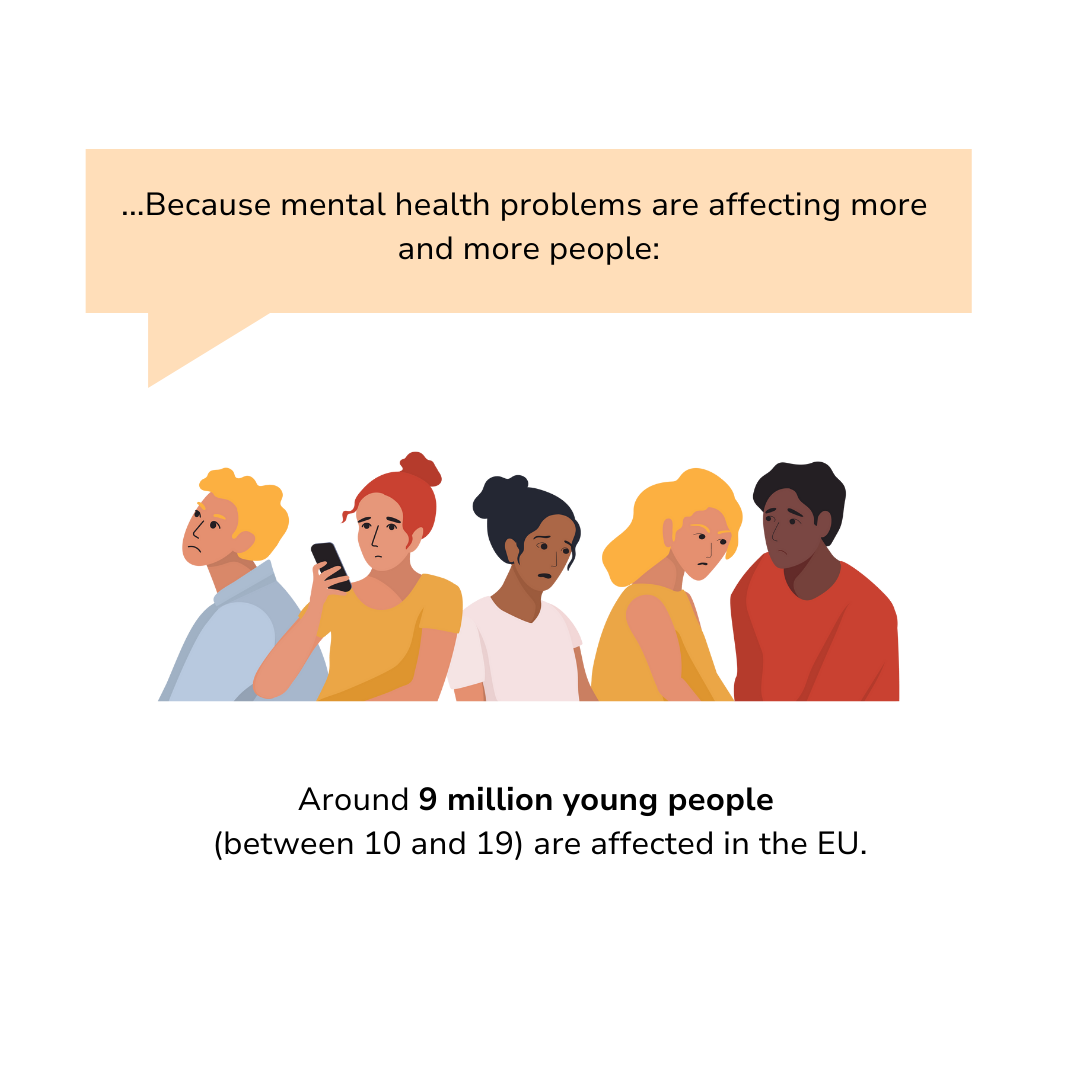
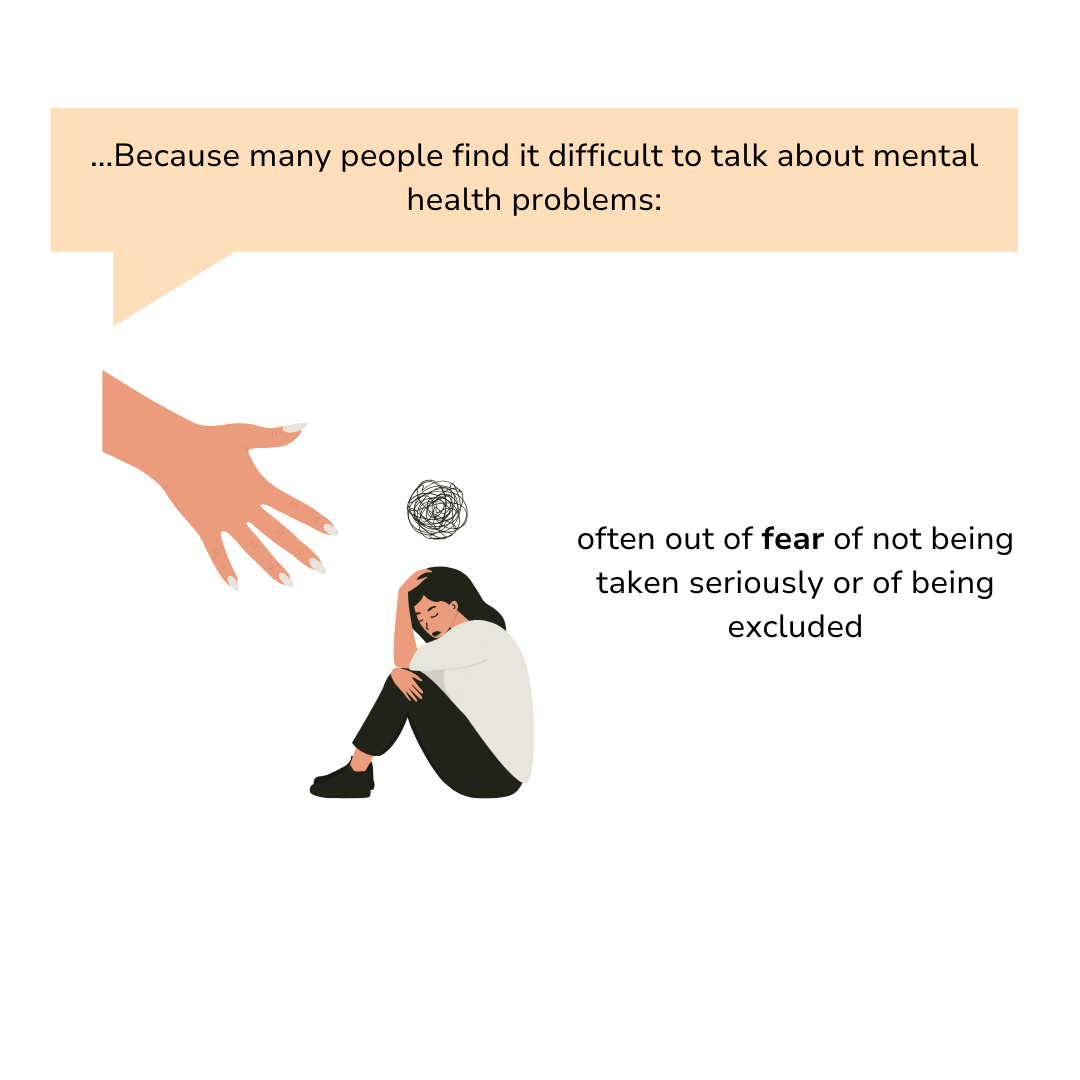
Beware of self-diagnoses:
Maybe this has already happened to you: you see something about mental health on social media and think “I know that, it’s the same for me!”.
In the field of mental health, there is a lot of content on social media that can give you the impression that you are affected by a mental illness - even if this is not necessarily true
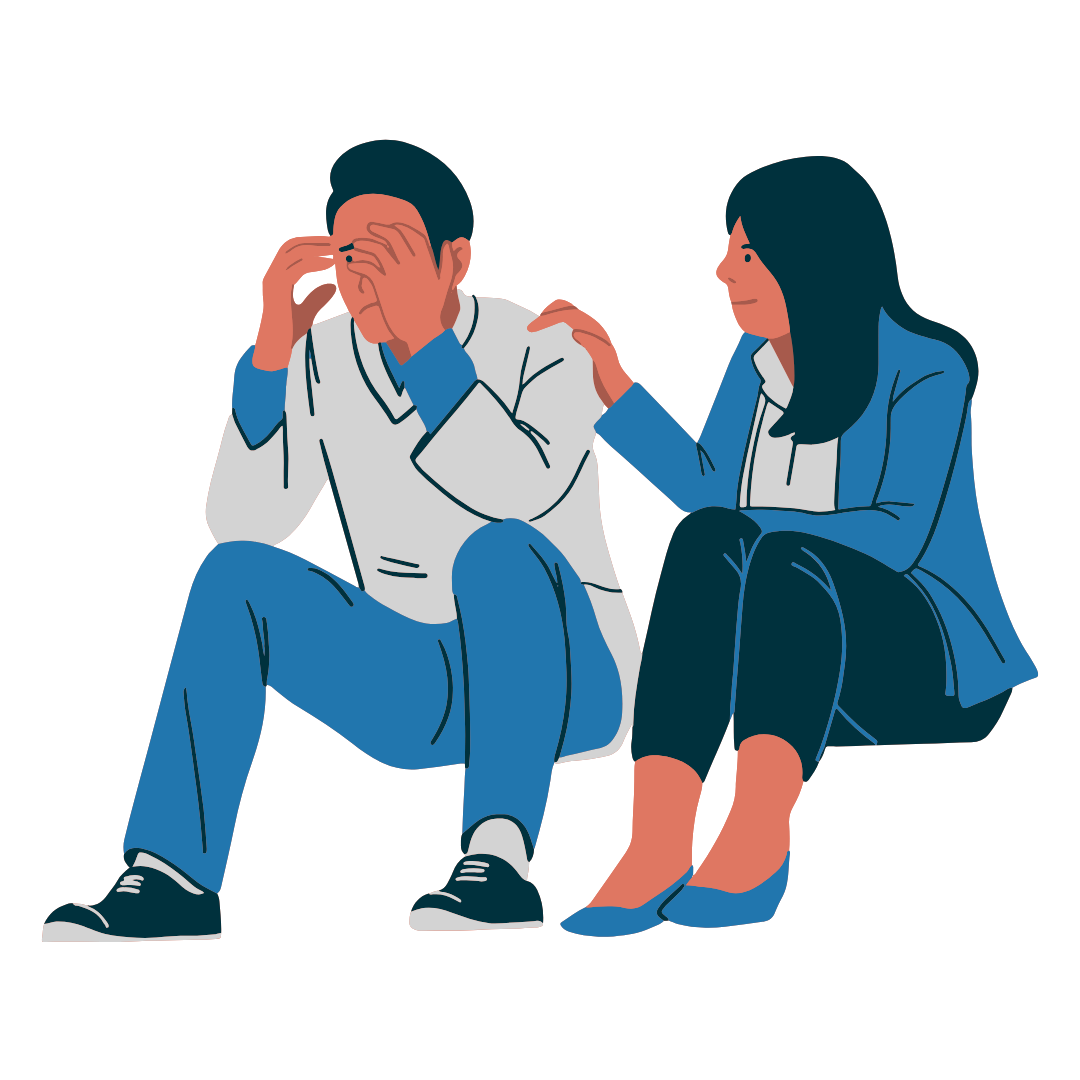
1. Check the source
Look for reputable websites or organizations. Established news outlets, educational institutions, and government websites typically provide reliable information.
Be cautious with personal blogs, social media posts, or unverified sources. Be wary of information that is based solely on personal anecdotes. Research the author’s background and credentials. Are they verifiable experts in the subject matter?
Serious content often cites sources, data, or research studies. Check if claims are backed by evidence.

2. Assess the quality of writing
Quality mental health resources often present multiple viewpoints and acknowledge the complexity of mental health issues (balanced perspective)
Reliable content generally has a clear structure, proper grammar, and a neutral tone. Be cautious of articles with sensationalist language (excessive emotion, oversimplified solutions, stigmatizing views) or numerous spelling and grammatical errors.
Consider the date of publication: Mental health research is continually evolving, so look for the most recent information, especially regarding treatment options and emerging practices.
3. Cross-check information & use fact-checking websites
- Verify facts by researching multiple sources. If you find the same information across different reputable sites, it’s more likely to be accurate.
Websites like FactCheck.org, and others can help verify claims and debunk misinformation. Use them when you’re unsure about the credibility of content.
You can also enter what you are looking for in search engines together with the word “fact check”, e.g. “climate change fact check”.
4. Analyse the purpose
Identify the purpose of the content. Is it meant to inform, sell a product, promote a specific agenda or share personal anecdotes? Serious mental health content should aim to educate without pushing a particular viewpoint.
Serious content often focuses on presenting facts rather than one-sided opinions
Recognize Red Flags
Be cautious of articles that promote quick fixes, miracle cures, or sensational stories. Mental health is complex, and serious content will typically emphasize the importance of individualized care and the absence of one-size-fits-all solutions.
5. Engage in critical thinking & discuss with others
Ask yourself questions! Does it seem too good to be true? Do claims align with what you already know?
Think critically about the information and its implications and don’t take everything at face value.
Talk to trusted adults, teachers or friends about the content. Different perspectives can help you assess the seriousness and validity of the information.

What are possible signs of mental health problems?
When asking yourself this question, it’s important to be aware that from time to time we all have a bad day, are annoyed by everything or treat those around us unfairly. That doesn’t necessarily mean that we have mental health problems. On the other hand, mental health problems often are not recognizable at first glance. Therefore, it is important to pay attention to how your own or the other person’s behavior changes. Even if it is not always talked about openly - sometimes hints are enough.
Clues could be a change in the amount of food eaten (does the person have more or less appetite?), in sleep (does the person often seem sleepy and inattentive?), a change in gradesor withdrawal from friends. Increasingly frequent physical complaints such as headaches, stomach aches or tension can also be an indication. Mental health problems can also manifest themselves in extreme behaviour - for example, if someone is drinking more than usual, taking drugs or acting out. Or if you discover cuts or other injuries that indicate self-harm (help links below).
What can you do if you want to improve your mental health?
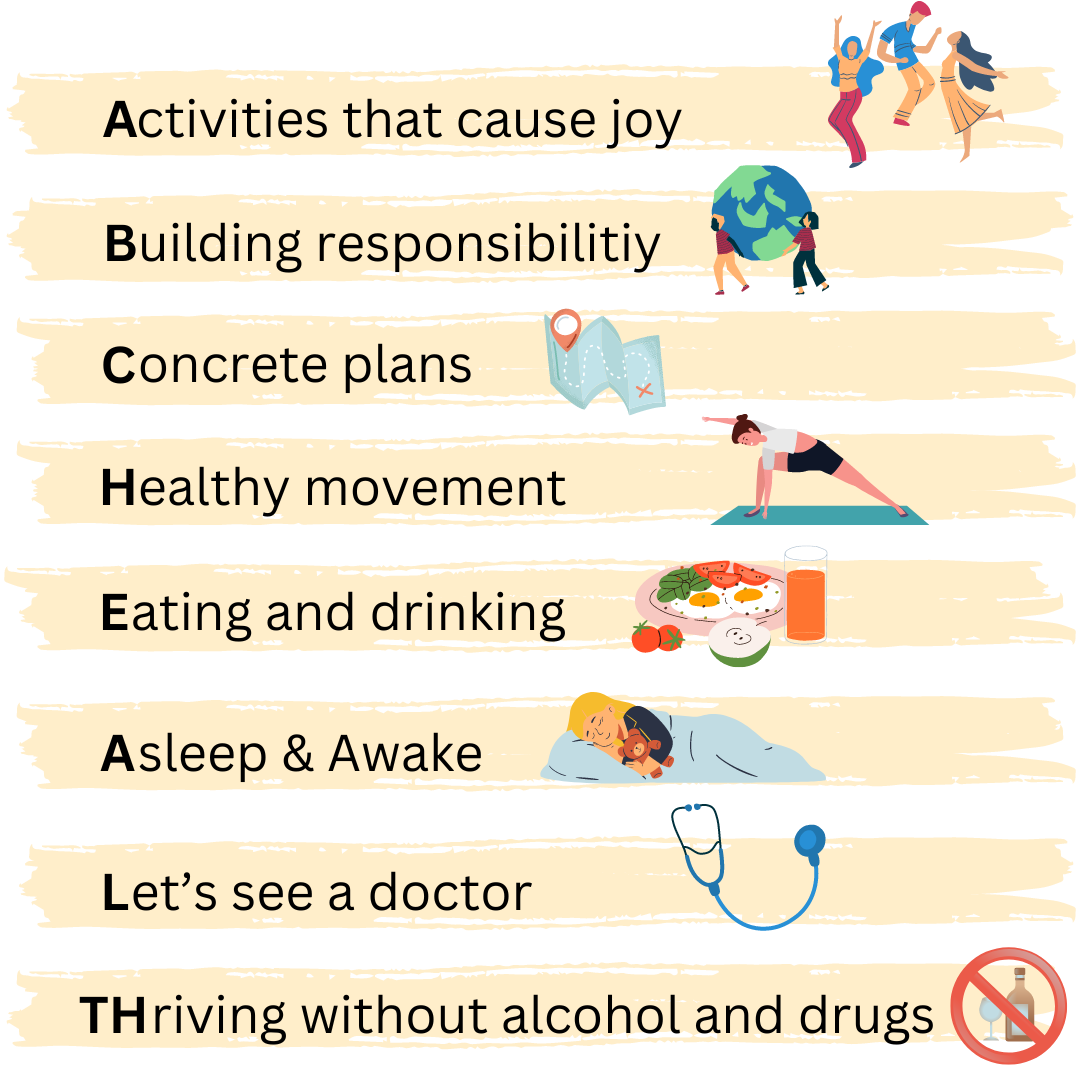
If you want to find out more about activities that cause joy, check out our eSano module "Finding your (inner) strengths".
If you need some inspiration on how to increase your everyday movement, check out our eSano module "Give your mind a break - and get moving!".
If you’re looking for insights on sleep and tips for sleeping better, check out our eSano module "Sleep well!".
If you want to learn more about the effects of alcohol and drugs on your mental health and self-test your consumption, check out our eSano module "Alcohol, tobacco, cannabis: What you should know".
If you feel overwhelmed by all the demands (school, hobbies, friendships, relationships, mental health,…), check out our eSano module "Stressed out - what now?".
What can you do if you are worried about someone else’s mental health?
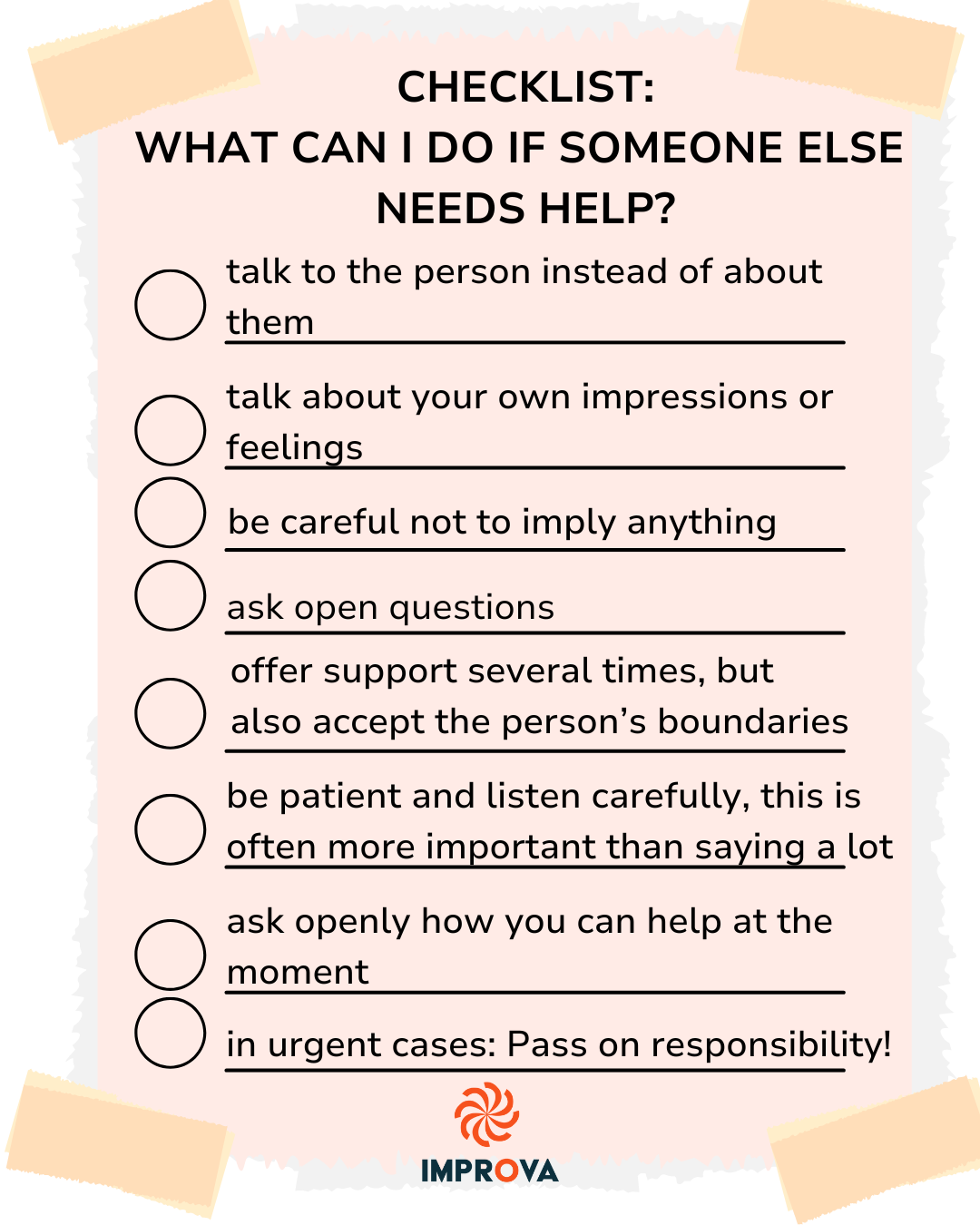
If you realize that it’s getting too much for you or that you might have serious mental health problems, seek help and pass on responsibility!
Talk to adults and professionals. This could be your parents, teachers, school psychologists, school social workers, …!
What can you do if you are worried about someone else’s mental health?
Professional support
Click on the button to access an overview of different support contacts to find immediate help.
Get helpTip: Change the language settings to your home country to get a direct overview of the respective support contacts in your country on this site.